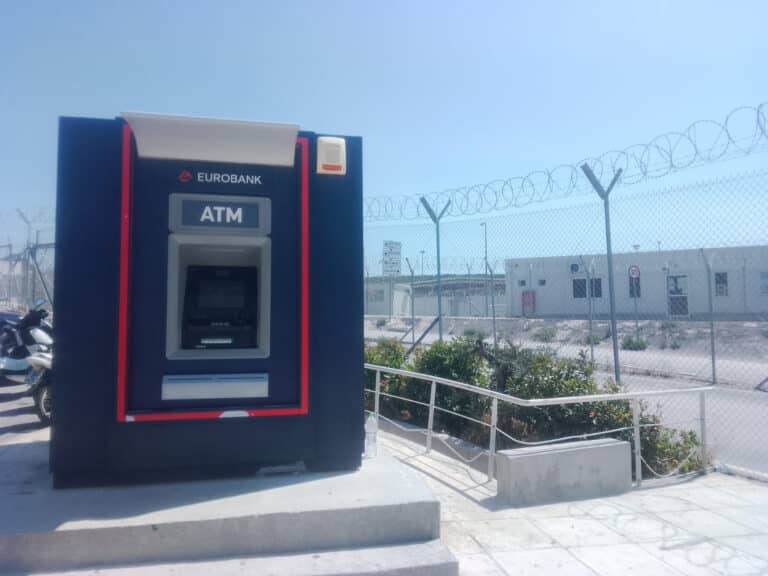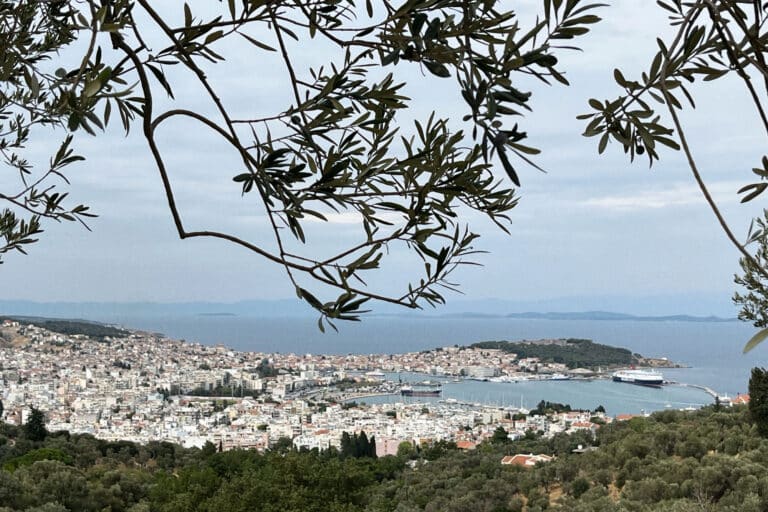Um Imran lives next door to the CPT Palestine office in Hebron. The front of her house is on the famous Shuhada Street, once the busy shopping center of Hebron, closed by Israel in 2001 to protect the settlers. She can’t use the front door. We share the back door and stairs and the rooftop, and I sometimes meet her on the roof, tending the fennel and onions and the little lemon tree she grows in makeshift containers there.
Born in 1938, Um Imran saw the start of the occupation as a child and has lived under it ever since. It has cost her many things.
Um Imran was a very good student up to third grade. In 1948, as the Arab-Israeli war began, the family moved from Jerusalem to Hebron. But they left her papers behind, and because of the danger of the war, it was impossible to go back for them. Without them, she couldn’t register for school. She was heartbroken. Fortunately, she excelled at the trade she was eventually sent to learn, sewing. She found it creative. Everyone, family and others, wanted her dresses.
Um Imran married and had five children – her daughter, Zulaikhah and four boys. Zulaikhah, who cares for her mother now, grew up to be an academic and realized the dream her mother had cherished for herself.
But sadly, Um Imran lost her husband. In 1967 came the Six-Day War. During that time, her husband disappeared suddenly and without a trace on the way home from a routine visit to Jordan along with about forty others, presumably all massacred at the Allenby Bridge. So Um Imran went out to work to raise her five children under ten years old, no easy job in a society with very patriarchal traditions. She became sick with exhaustion at the dressmaking factory where she worked, but discovered a talent for business, buying from wholesalers and reselling clothes as far away as Jerusalem and Jordan.
Um Imran lost a son too, for six and a half years, as a political prisoner in Israeli jails. The army came to the house when everyone was asleep. They searched the house and took him away just as he was, with no chance to get dressed. Conditions in prison were terrible. Once she visited him when it was snowing. “You have all this snow outside, and we have none inside,” he said. The prisoners were being refused water as a punishment and all their warm clothes and blankets were taken away. She told the stories of several nephews who had been imprisoned without trial for little or no reason. One once bought a second-hand computer in a shop. It was found at a checkpoint to be a surplus army machine. The computer was taken away and he was jailed for a week. He was also fined 500 shekels, and he never got his computer back.
I asked Um Imran about her hopes for the future. She wants success for her children and grandchildren, and she’d like not to see any more videos of Israeli soldiers detaining local children. Her eyes lit up when she added, emphatically: “and NO OCCUPATION!”
Inshallah, Um Imran, in your lifetime and mine.




